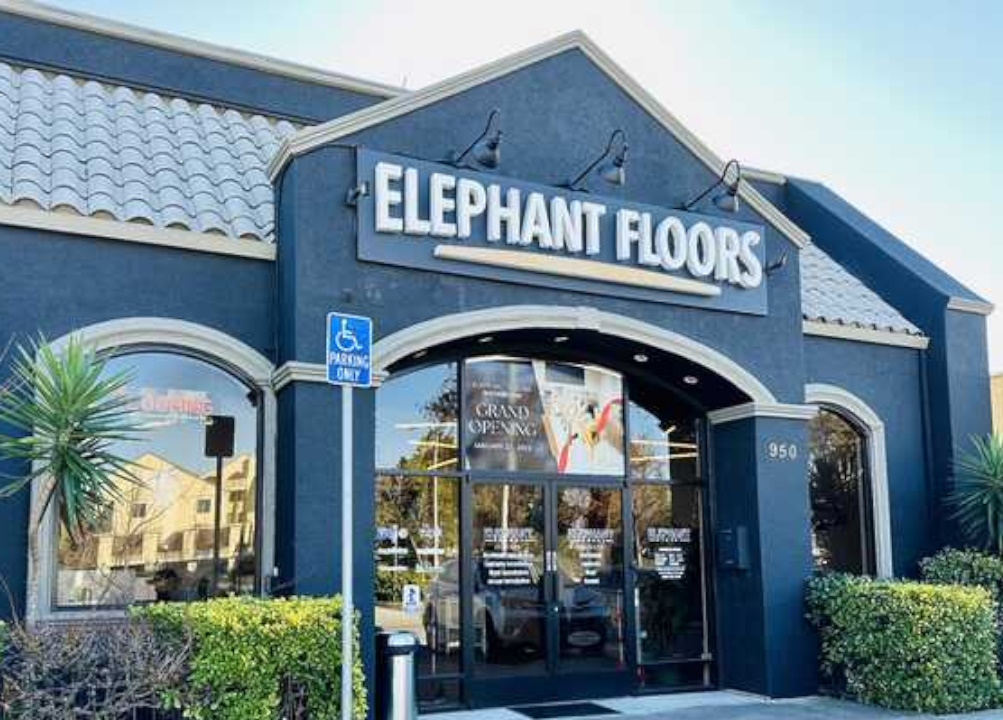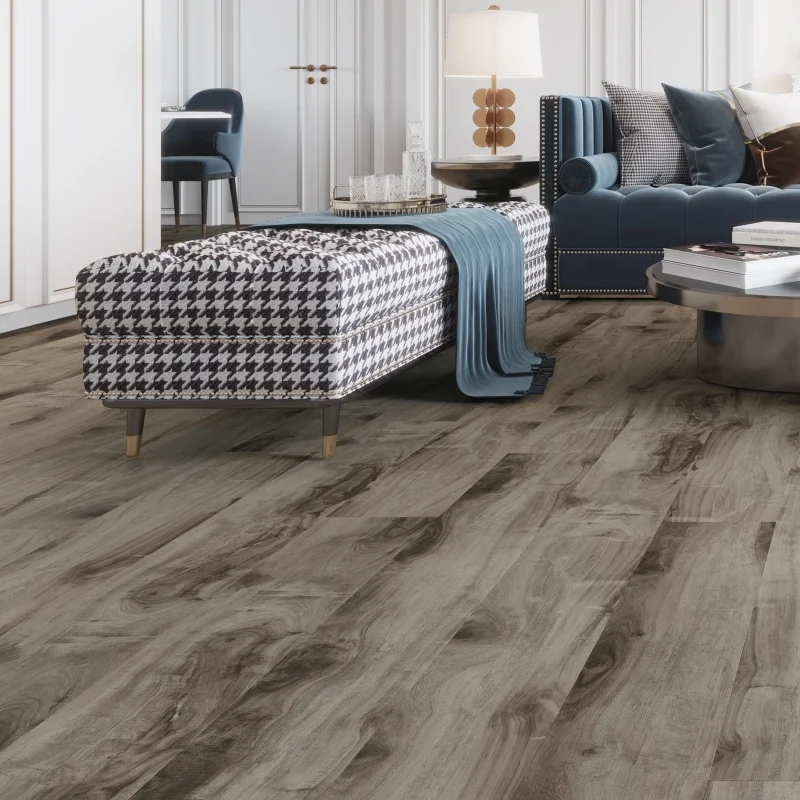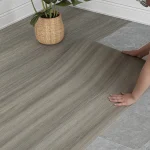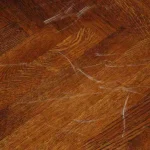- October 3, 2024
Vinyl plank flooring is popular in modern homes for its versatility and affordability. It mimics the look of natural materials like wood and stone. But like any other thing in this life, vinyl flooring has its pros and cons as well.
This flooring option is durable and easy to install. As a result, it’s favored by both DIY enthusiasts and professional installers.
As with any flooring option, vinyl plank flooring has advantages and disadvantages. This article aims to explore the pros and cons of vinyl plank flooring. It will help you make an informed decision that suits your lifestyle, budget, and home needs. Whether renovating a single room or an entire house, understanding the benefits and potential drawbacks of vinyl plank flooring is essential.
What is Vinyl Plank Flooring?
Vinyl plank flooring is a popular option for modern homes. It is versatile and replicates the look of natural materials like wood or stone. It consists of multiple layers, each serving a specific purpose.
- The top layer, known as the wear layer, protects against scratches and stains.
- Beneath this is the printed vinyl layer. This layer gives the flooring its design, mimicking the appearance of natural materials.
- The core layer, made of PVC or composite materials, adds stability. It also enhances the floor’s durability.
- The bottom layer, often an underlayment, offers sound absorption. It also provides cushioning for added comfort.
There are several types of vinyl plank flooring, each offering unique benefits.
Luxury Vinyl Plank (LVP) is known for its high-quality appearance and realistic textures. It’s a popular choice for homeowners seeking the look of hardwood without the high cost.
Rigid Core vinyl plank flooring includes WPC (Wood Plastic Composite) and SPC (Stone Plastic Composite). WPC is softer underfoot. It provides better sound insulation. SPC is denser and more resistant to impacts and dents. It makes SPC ideal for high-traffic areas.
Advantages of Vinyl Plank Flooring
Vinyl plank flooring has become a popular choice for homeowners and businesses alike. It’s due to its impressive range of benefits. It combines durability, water resistance, and a realistic appearance. So, it’s a practical solution for various spaces.
Durability and Longevity
Vinyl plank flooring is renowned for its durability and longevity. It is largely due to its advanced wear layers and protective coatings. These layers protect the flooring from scratches, dents, and stains. As a result, it maintains its appearance even in high-traffic areas.
The protective coating also helps resist moisture. It makes vinyl plank flooring practical for spaces prone to spills or humidity. Compared to hardwood flooring, vinyl plank flooring is more resilient. Hardwood flooring can be susceptible to scratches and requires regular maintenance. Vinyl plank flooring, on the other hand, is low-maintenance. This combination of durability and minimal upkeep makes vinyl plank flooring an excellent choice. It is suitable for both residential and commercial settings.
Water and Moisture Resistance
Vinyl plank flooring excels in water and moisture resistance. It’s ideal for bathrooms, kitchens, and basements. Its construction includes a waterproof core. It also has protective layers. These layers prevent water from penetrating the surface. It ensures durability in humid environments.
Proper installation is crucial for maximizing its water-resistant qualities. Using moisture barriers can further enhance its effectiveness. In contrast, traditional hardwood flooring is more vulnerable to water damage. It requires careful maintenance to avoid warping or swelling.
Unlike hardwood, vinyl plank flooring can withstand spills and high humidity. Vinyl plank flooring is a superior choice for moisture-prone areas. It offers a practical, long-lasting solution for various environments.
Ease of Installation
Vinyl plank flooring is renowned for its ease of installation. It is primarily due to its floating floor and click-lock installation methods. The floating floor system does not require glue or nails. It allows planks to “float” over the subfloor, which speeds up the process. The click-lock method involves snapping planks together. It does not require additional adhesives making it particularly DIY-friendly.
This simplicity in installation means homeowners can undertake the project themselves. This way, they can save on professional labor costs. Vinyl plank flooring is an economical choice. It is suitable for both renovations and new constructions. These features combined make vinyl plank flooring an accessible and cost-effective flooring option.
Variety of Styles and Designs
Vinyl plank flooring offers a variety of styles and designs. It mimics the appearance of natural materials such as wood, stone, and tile. This versatility allows homeowners to achieve the aesthetic they desire. They can do so without the high cost of genuine materials. It also reduces maintenance requirements.
Vinyl planks come in a broad range of colors and textures. They offer looks from rustic wood to sleek, modern stone finishes. This extensive selection makes it easy to find a style. It can complement various home decor themes. It includes traditional, contemporary, or somewhere in between. Its adaptability ensures that vinyl plank flooring can seamlessly integrate into any room. It enhances the overall design. At the same time, it provides practical benefits like durability and easy maintenance.
Comfort and Sound Absorption
Vinyl plank flooring offers enhanced comfort underfoot. It is due to its construction, which includes added layers. One of these layers is cushioned backing. These layers provide a softer feel. It’s more comfortable to stand on. Walking on it is more comfortable than on other hard flooring options.
Also Read: Vinyl vs. Laminate: Which is Better?
Vinyl planks have sound absorption properties. These properties help reduce noise. They create a quieter and more serene environment. It is particularly beneficial in multi-story homes. It is also useful in apartments. Sound transfer can be an issue in these settings.
In contrast, hard flooring options like tile or hardwood can be harder and noisier. It can lead to more foot fatigue and sound reverberation. Vinyl plank flooring improves both physical comfort and acoustic quality in any space.
Disadvantages of Vinyl Plank Flooring
Despite its benefits, there are certain limitations associated with vinyl planks. These challenges may impact your decision.
Potential for Fading and Discoloration
Vinyl plank flooring can be susceptible to fading and discoloration. It is especially true with prolonged exposure to sunlight and UV rays. Over time, intense light can cause the colors to shift or dull. UV-resistant coatings can be applied to mitigate this issue. These coatings help protect the flooring from sunlight and extend its visual appeal.
Vinyl planks have a higher potential for color change than other flooring options like tile or laminate. Tile and laminate tend to be more resistant to UV-induced fading.
Susceptibility to Scratches and Dents
Vinyl plank flooring can be susceptible to scratches and dents. It is particularly true with heavy furniture or pet claws. The impact of these forces can compromise the flooring’s surface and lead to visible damage. The thickness of the wear layer is crucial for resistance to such damage. A thicker wear layer generally offers better protection.
To mitigate this issue, use furniture pads and regularly trim pet claws. These actions can help minimize scratching. Additionally, placing rugs or mats in high-traffic areas provides an extra layer of protection. Despite these precautions, vinyl plank flooring may still experience wear over time.
Not Easily Repairable
Vinyl plank flooring is not easily repairable. Replacing damaged planks can be challenging. It often requires removing and re-installing sections of the floor. The process can be time-consuming and may involve sourcing matching planks. These matching planks might not always be readily available.
In comparison, repairing tile or hardwood flooring involves simpler methods. For tiles, this includes replacing individual tiles. For hardwood, it involves sanding and refinishing wood. The cost of repairing vinyl plank flooring can be higher. This is due to the potential need for professional help and matching materials.
Environmental Concerns
Vinyl plank flooring raises environmental concerns. This is primarily due to its use of PVC (polyvinyl chloride). It’s a plastic that poses significant ecological challenges. PVC production involves the release of harmful chemicals. Its disposal can contribute to environmental pollution because it is not easily recyclable.
Also, recycling vinyl plank flooring itself is complicated. It is often not feasible, leading to concerns about long-term sustainability. In comparison, eco-friendly flooring options like bamboo offer a more sustainable choice. Bamboo is rapidly renewable. It has a lower environmental impact during production and disposal.
Lower Resale Value Compared to Hardwood
Vinyl plank flooring can negatively impact home resale value compared to hardwood flooring. Hardwood is often perceived as a premium material. It enhances the aesthetic and value of a home. Hardwood flooring appeals to potential buyers who see it as a long-term investment.
In contrast, vinyl plank flooring is practical and cost-effective. However, it may not be viewed favorably. Buyers might see it as less durable or valuable. This perception can affect the overall marketability of the property. As a result, homes with vinyl plank flooring might not command the same resale price as those with hardwood. For those considering long-term investments, investing in hardwood may offer better returns.
Practical Considerations
When considering vinyl plank flooring, evaluate several practical factors. These include cost and budgeting. Maintenance and care are also important considerations.
Cost and Budgeting: Vinyl plank flooring costs between $2 to $5 per square foot. It’s affordable compared to higher-end materials like hardwood or natural stone. Additional costs include underlayment ranging from $0.30 to $1 per square foot.
Installation fees may vary depending on the complexity of the job. Professional installation can add $1 to $3 per square foot. Some homeowners choose DIY methods to save on these costs. Vinyl plank flooring is often more budget-friendly than other options, such as hardwood or tile. Hardwood can cost $5 to $10 per square foot, while tile can range from $3 to $15 per square foot, excluding installation.
Maintenance and Care: Vinyl plank flooring requires minimal daily maintenance. It usually involves regular sweeping or vacuuming to remove debris. For cleaning, a damp mop with a mild cleaner is enough. It’s important to avoid harsh chemicals that could damage the surface. Long-term care involves addressing potential issues such as scratches or dents. These can occur despite the flooring’s durability.
In comparison, hardwood requires periodic refinishing and can be prone to scratching and water damage. Vinyl plank flooring is relatively low-maintenance. Tile, while durable and easy to clean, can have grout lines that require regular cleaning and sealing.
Conclusion
Vinyl plank flooring offers a range of benefits. It is affordable and easy to install. It also resists water and scratches. These features make it suitable for many environments. Its variety of styles and ease of maintenance add to its appeal.
However, it also has drawbacks. Vinyl plank flooring is susceptible to fading. It has a potential for scratches and difficulty in repairs. Environmental concerns and lower resale value compared to hardwood are also important considerations.
Ultimately, vinyl plank flooring provides a practical and cost-effective solution. However, weighing the pros and cons is essential. It will help determine if it meets your specific needs and preferences.
On the Elephant Floors, you will find the best vinyl choices. There are many options according to your taste and budget. We also provide installation which is far more important for laminate vs. vinyl.
If you are still doubtful about your choice,click here for a helpful consultation.




